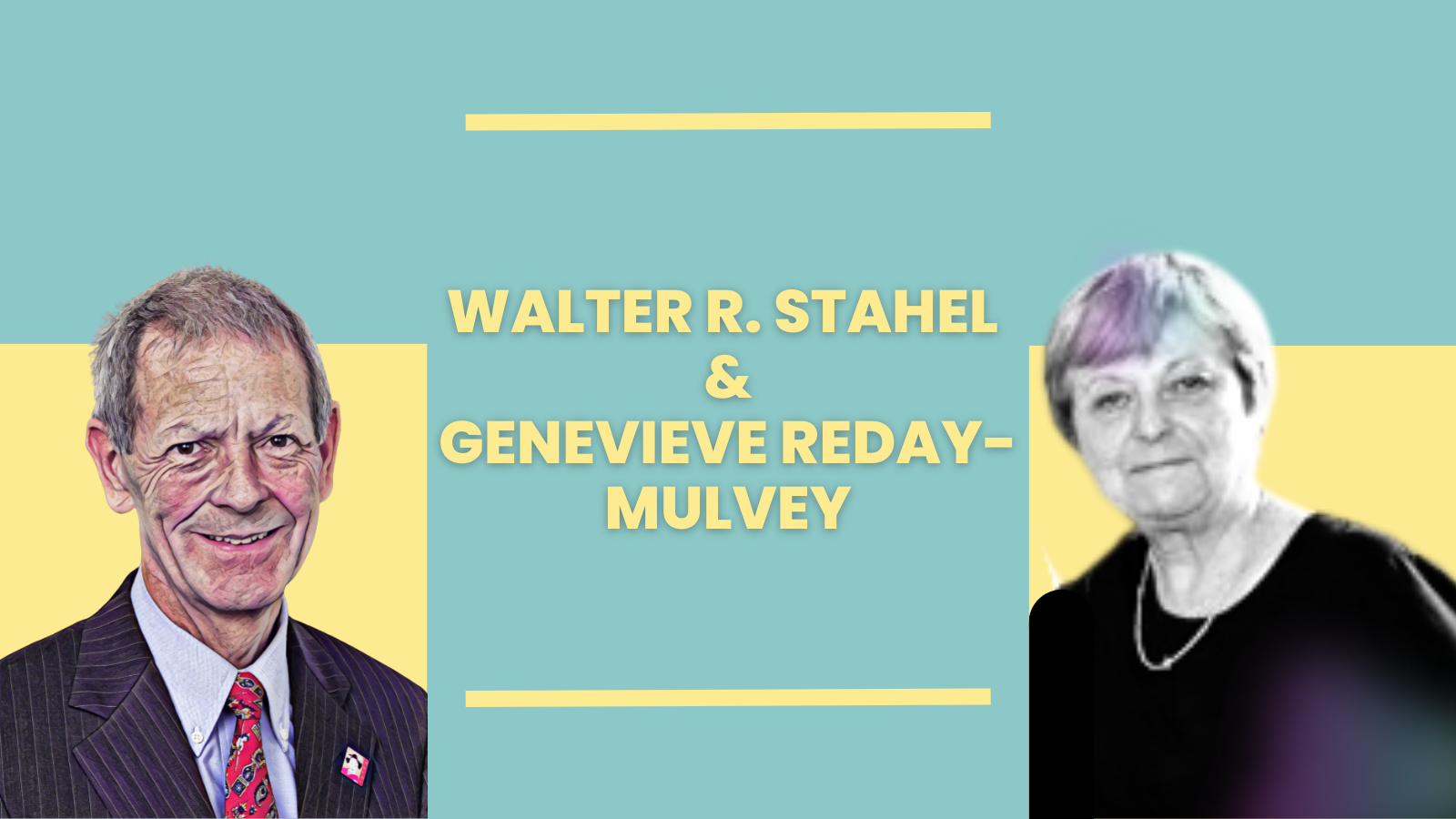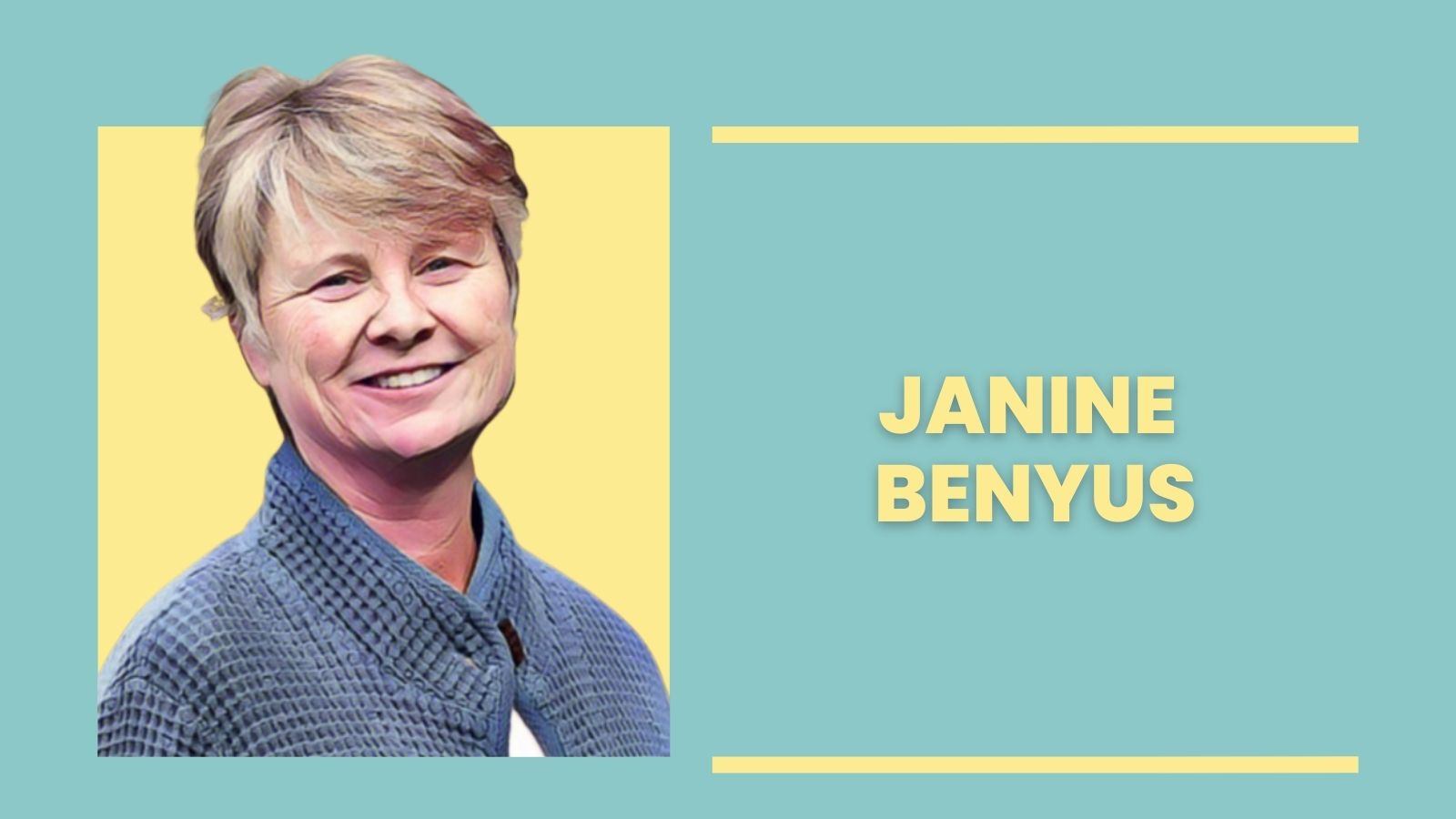
Walter R. Stahel and Genevieve Reday are prominent figures in the Circular Economy movement. Stahel, often called one of the Founding Fathers of the Circular Economy and Founder-Director at the Product-Life Institute Geneva, is a Swiss economist who is credited with coining the term in the 1980s and promoting the idea of a closed-loop system for the production and consumption of goods. Reday is a sustainability expert who has made significant contributions to the implementation of the Circular Economy concept through her work with organizations and governments.
Together in their 1976 European Commission report The Potential for Substituting Manpower for Energy, Stahel and Reday advocated for the transition from a linear, take-make-waste model to a closed-loop system in which resources are kept in use for as long as possible through repair, reuse, refurbishment, and recycling. Today, the research they outlined has resulted in the three pillars of sustainable development: ecologic, economic, and social compatibility, and their work has helped to raise awareness and drive action towards a more sustainable and equitable economy.

Chances are you’ve heard of the Ellen MacArthur Foundation, a UK-based charity that promotes the transition to a Circular Economy. It was founded by the yachtswoman Dame Ellen MacArthur DBE in 2010 with the aim of accelerating the transition to a Circular Economy. The foundation carries out research, provides education and thought leadership, and works with businesses, governments, and other organizations to help them adopt circular principles.
The Ellen MacArthur Foundation is widely recognized as a leading authority on the Circular Economy and has played a key role in raising awareness of the benefits of a circular approach, as well as in shaping the policy and business agendas in this area. It’s work has helped to drive action and investment towards a more sustainable and regenerative economic model.
If we could build an economy that would use things rather than use them up, we could build a future.
Ellen MacArthur

Jacqueline Cramer is a Dutch politician who served as the Minister of Housing, Spatial Planning and the Environment from 2007 to 2010. During her time in office, she made significant advances in the development and implementation of Circular Economy policies in the Netherlands. Cramer is a strong advocate for the transition to a Circular Economy and works to promote the adoption of circular principles in various sectors, including construction, agriculture, and industry.
She also played a key role in establishing the Dutch Green Deal, which aims to accelerate the country’s transition to a more sustainable, Circular Economy. Cramer’s efforts helped to raise awareness of the benefits of a circular approach and laid the foundation for continued progress in the Netherlands and beyond. Her work remains an inspiration for those working towards a more sustainable and regenerative economic model.
Read: Her book Building a Circular Future offers invaluable insight into governing a Circular Economy.

American architect William McDonough and German chemist Prof. Dr. Michael Braungart are designers who have made major contributions to the development of the Circular Economy. McDonough is a sustainability advocate who is widely recognized for his pioneering work in designing environmentally responsible buildings and products. Braungart is an environmental researcher who has focused on the environmental impacts of production and consumption.
Together, McDonough and Braungart developed the Cradle to Cradle design framework, which promotes the idea of a closed-loop system in which materials and resources are kept in use for as long as possible. They argue that products should be designed to be safe and biodegradable, so that they can be composted at the end of their useful lives. Their work has had a major impact on the Circular Economy movement, helping to promote the idea of a more sustainable and regenerative economic model and inspiring businesses, governments, and individuals to adopt circular principles.
Good to know: Prof. Dr. Michael Braungart served as one of our inspiring jury members for the 2022 launch of the CIRCULAZE Top 20 Circular Economy Start-ups listicle.

anine Benyus is an American scientist, author, and innovation consultant who has made significant inputs towards the development of the Circular Economy. Benyus is best known for her work on biomimicry, a field that draws inspiration from nature to create sustainable solutions. She has written several influential books on the subject, including Biomimicry: Innovation Inspired by Nature.
Through her work, Benyus has helped to raise awareness of the importance of designing systems that emulate the closed-loop, waste-free functioning of natural systems. Her ideas have been embraced by the Circular Economy movement and have influenced the development of circular approaches to product design, production, and consumption. Benyus continues to be an influential voice in the field and is widely recognized for her contributions to the development of the Circular Economy.

Kenneth E. Boulding was a British economist and one of the very first proponents of a Circular Economy. Boulding was a visionary thinker who explored the idea of a closed-loop, Circular Economy as early as the 1950s and 60s. He was an advocate of a systems approach to economic issues and was one of the first economists to recognize the importance of feedback loops and non-linear dynamics in economic systems.
Boulding’s ideas have been highly influential in the development of the Circular Economy movement and continue to shape thinking in this field. He is remembered for his innovative principle, which helped to lay the foundation for a more sustainable and regenerative economic model. His work remains relevant today and continues to inspire those working towards a more circular and equitable economy.
Anyone who believes in indefinite growth in anything physical, on a physically finite planet, is either mad or an economist.
– Kenneth E. Boulding

Gunter Pauli is a Belgian entrepreneur, economist, and sustainability expert, who is well known for his work as the founder of the Zero Emissions Research and Initiatives (ZERI) network, which aims to promote sustainable solutions for business, agriculture, and industry. Through ZERI, Pauli has been a strong advocate for the transition to a Circular Economy and has helped to promote the idea of closed-loop systems that minimize waste and conserve resources.
He is widely recognized for his innovative thinking and has inspired a new generation of entrepreneurs, policymakers, and thought leaders to adopt circular principles. His work continues to be influential in the movement, and he is widely regarded as a pioneer in the development of a Circular Economy.
More Circular Pioneers to check out: Paul Hawken (American environmentalist), Sir David Attenborough (English broadcaster and biologist), Amory Lovins (American writer and physicist), and Tim Brown (English designer).
ABOUT
CIRCULAZE, an initiative launched by business network CURAZE, was started to connect pioneers in sustainable business management and thought leaders to form a network together with the most relevant start- and scale-ups in the field of the Circular Economy. The goal of the community is to establish a powerful ecosystem, to exchange good practices, and inspire each other on the path to even more sustainable companies. Our motto: Can’t Do It Alone.
CIRCULAZE is made possible with the friendly support of our amazing partners: DB Cargo, DATEV, 4PCapital, hemmersbach, VP Group, ODDO BHF, DEFACTO, Rödl & Partner, Jack Wolfskin, Beiersdorf, Messe München, and foodaffairs.
